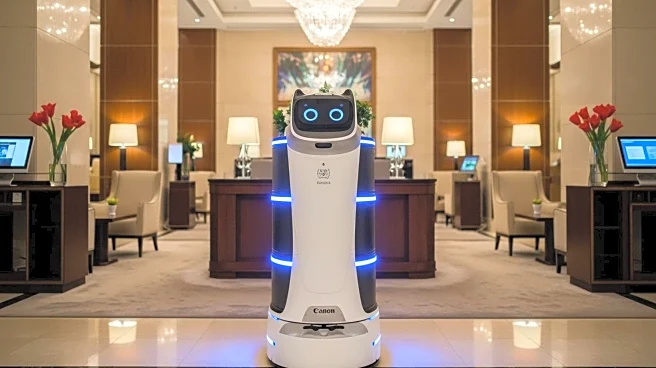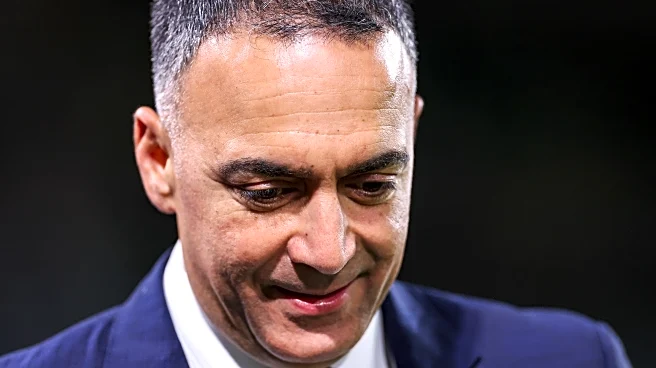What is the story about?
What's Happening?
The hospitality industry is exploring innovative concepts for hotels that integrate advanced technologies to enhance guest experiences. Inspired by Alvin Toffler's vision of the Information Age, these hotels are envisioned as adaptive ecosystems that respond to guests' needs through ambient intelligence. This includes features such as mood-sensing walls, circadian rhythm-adjusting lighting, and rooms that reconfigure based on the guest's purpose, whether for work, wellness, or leisure. The concept extends to bio-personalized environments, where air quality and nutrition are optimized using wearable data, and guests can engage in activities like gene therapy or neuro-enhancement. The idea is to transform hotels into spaces for reflection, creation, and connection, aligning with the rapid acceleration of human knowledge and technological advancements.
Why It's Important?
The integration of AI and advanced technologies in hotels represents a significant shift in the hospitality industry, potentially redefining guest experiences and operational efficiencies. This approach could lead to increased personalization and satisfaction, attracting tech-savvy travelers who value seamless connectivity and innovative environments. The move towards AI-driven hotels also highlights the industry's adaptation to the growing demand for sustainable and wellness-focused travel options. As human knowledge continues to double at unprecedented rates, the hospitality sector's embrace of technology could position it as a leader in providing cutting-edge experiences, while also addressing environmental concerns through initiatives like carbon offsetting.
What's Next?
As the concept of AI-driven hotels gains traction, industry stakeholders may begin investing in research and development to bring these futuristic ideas to fruition. This could involve collaborations with tech companies to develop the necessary infrastructure and systems for ambient intelligence and bio-personalization. Additionally, hotels might start piloting these technologies in select locations to gauge guest responses and refine their offerings. The potential for AI to enhance operational efficiency and guest satisfaction could lead to widespread adoption, transforming the hospitality landscape and setting new standards for guest experiences.
Beyond the Headlines
The shift towards AI-driven hotels raises ethical and cultural questions about the role of technology in hospitality. While these innovations promise enhanced experiences, they also challenge traditional notions of human interaction and service. The reliance on algorithms and AI for personalization may lead to concerns about privacy and data security, as guests' personal information is used to tailor their stay. Furthermore, the potential replacement of human staff with robots and AI systems could impact employment in the industry, necessitating discussions on workforce adaptation and training.
















